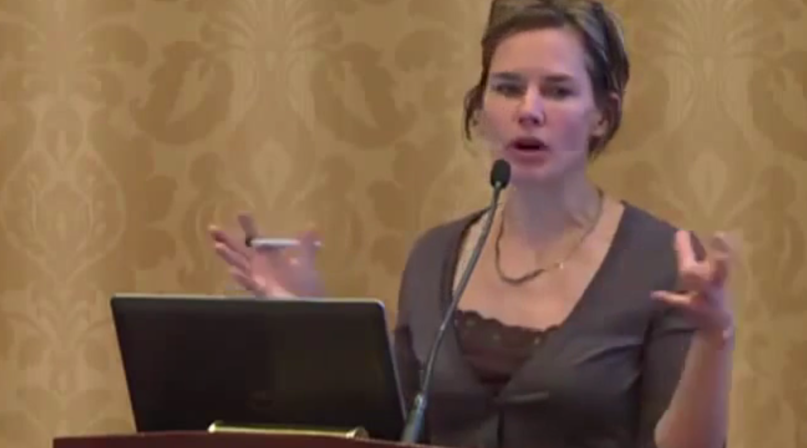Ex-White House tech guru: Counties do innovate


(Left) Jennifer Pahlka, founder and executive director of Code for America, speaks to NACo Technology and Innovation Summit luncheon attendess. (Right) Shelly Goodman Taub, Oakland County, Mich., and Don Couch, Maui County, Hawai'i, follow a Tech Summit presentation on a tablet. Jennifer Pahlka, founder and executive director for Code for America, demystified her organization's esoteric name, emphasizing that technology "was a third- or fourth-order question" in government.
View recordings from the Technology Innovation Summit
"What comes first is users," she told attendees of the Technology Innovation Summit. "We don't need to be all be coders, but good governance and good society is now inextricably linked to at least an understanding of the digital." Pahlka recently served as the deputy chief technology officer in the White House's Office of Science and Technology Policy. She issued a call for county government officials and administrators to work more closely with technology leaders to tell counties' stories and put counties' services forward in a way that greets users and makes county services accessible. "It is how we govern, it's in every service we provide," she said of technology. "We need to integrate that in and think about it." She relayed the experience that three of her organization's fellows had when working with the city and county of Honolulu.
Their hosts insisted they work on the county's website, a job far too daunting for their resources, but they analyzed most-searched-for content and with the help of acquaintances in county government, spent a weekend assembling more effective answers for the most pressing questions users had for the site. "Participating in government is not just complaining," she said. "It's offering your hands and saying 'I can be involved with this.'" She acknowledged that government fights an uphill battle in many people's minds when it comes to innovation. Although the private sector is viewed as faster, government retains credibility and unity that can make up for that disadvantage. "What degrades the reputation of government, in innovation, is the perception that while the rest of the world is moving so fast there's a perception that it isn't moving so fast in government," she said. "Governments will always be constrained, always have less capacity than people want them to have. Where community can come together and be that capacity, government can be the platform."
Attachments
Related News

Congress considers moratorium on state and local AI lawmaking: What it means for counties
The U.S. Senate’s reconciliation bill text includes a 10-year moratorium on state and local AI policymaking.

NACo Legal Advocacy: McLaughlin Chiropractic Associates, Inc. V. McKesson Corporation
McLaughlin Chiropractic Associates, Inc. V. McKesson Corporation could make it more difficult for counties to challenge FCC orders, many of which have taken steps to preempt and curtail local authority by limiting counties’ abilities to manage their own right of way and assess fair market value permitting and impact fees on providers seeking to construct, modify or extend telecommunications infrastructure in their communities.

U.S. House passes rescissions package
On June 12, the U.S. House of Representatives passed the Rescissions Act of 2025 (H.R. 4) in a narrow 214-212 vote. The legislation would cancel $9.4 billion in previously approved federal funding, marking the Trump Administration’s first formal attempt to codify funding cuts proposed by the Department of Government Efficiency (DOGE).
